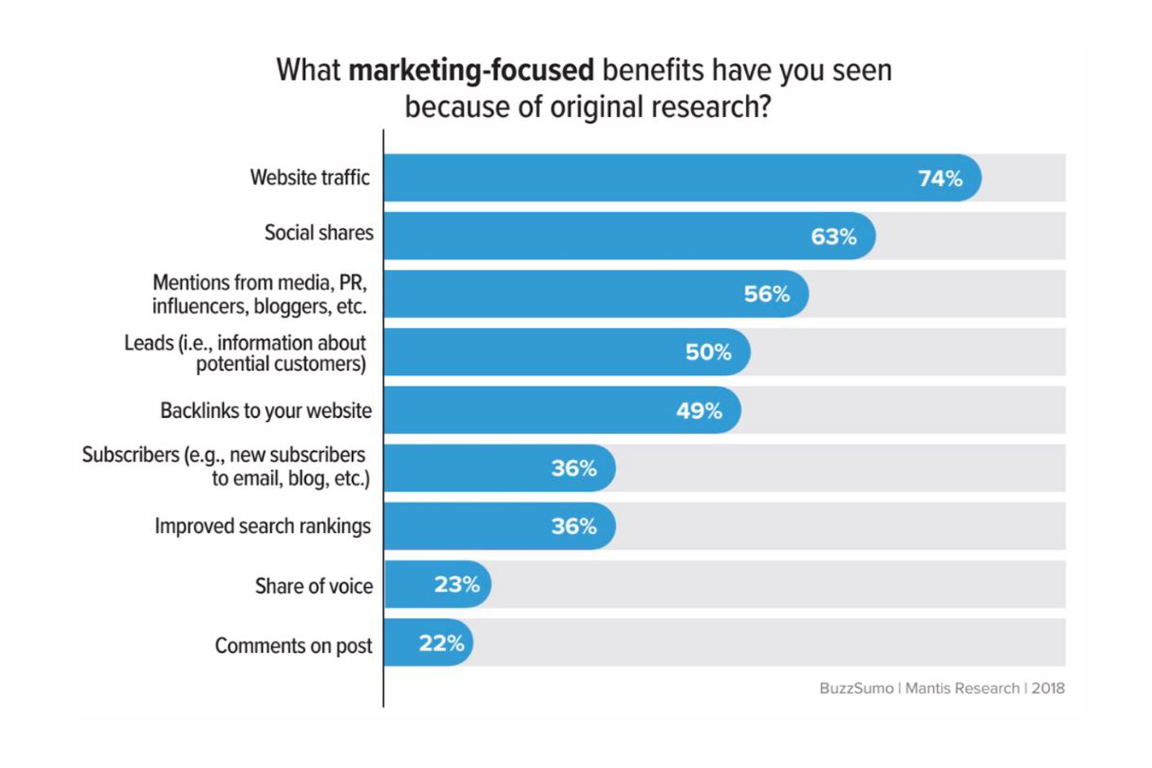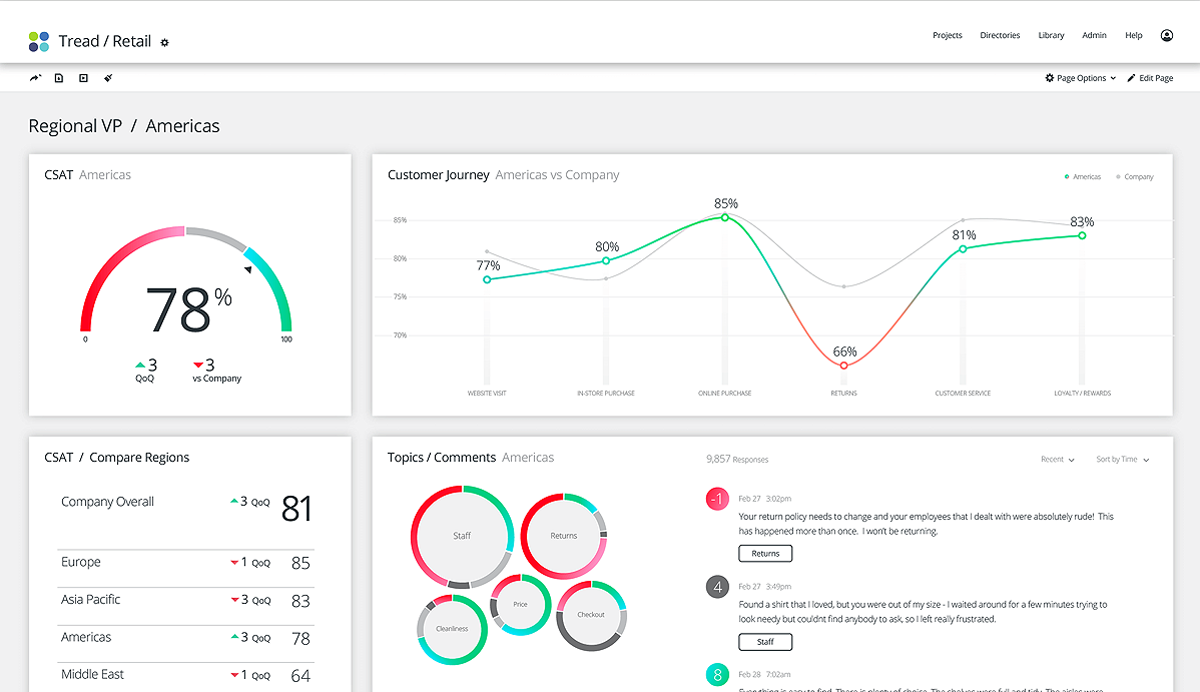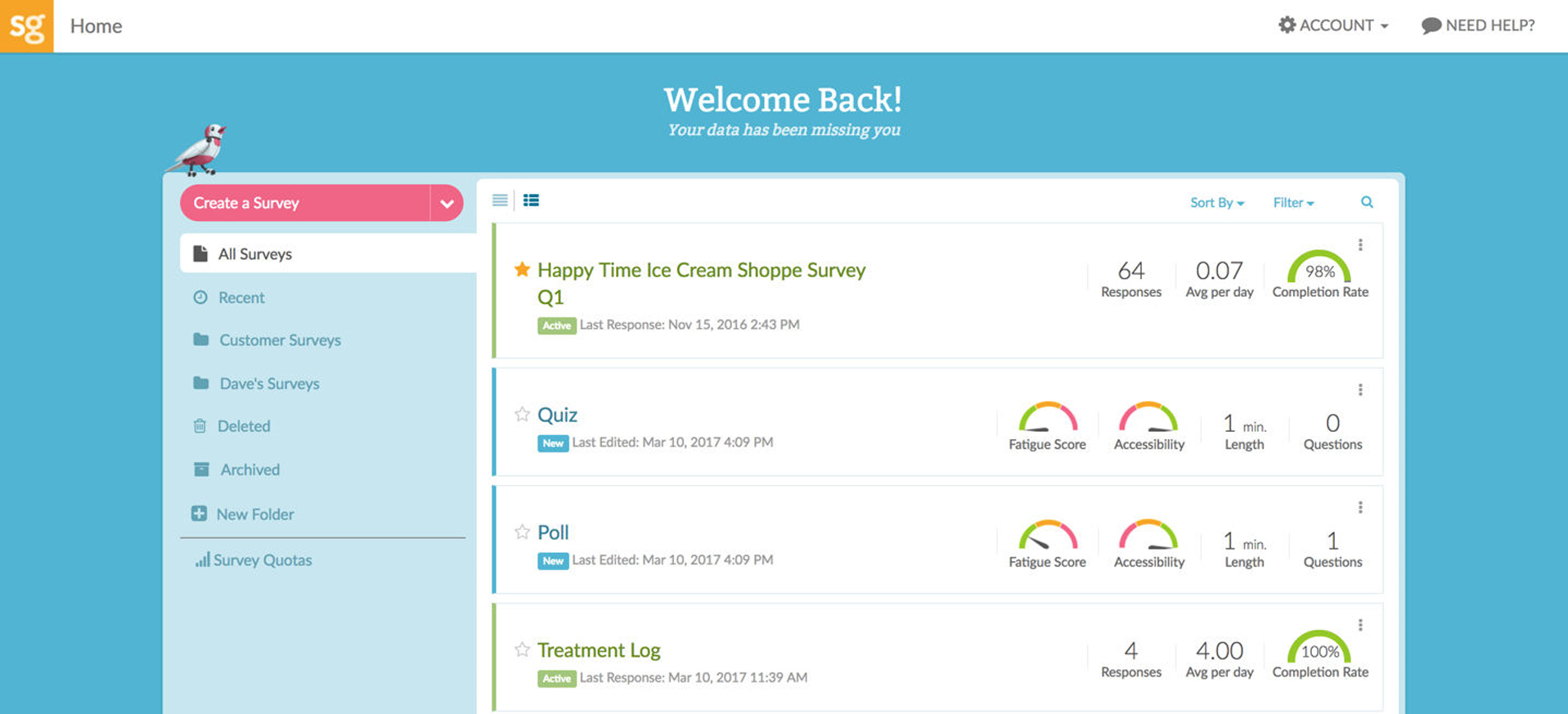In the digital age, making even the most educated guesses won’t cut it anymore when it comes to business. Competing in a data-driven marketplace, critical business decisions should only be made based on relevant and timely research or surveys.
Survey solutions enable businesses to discover consumers’ views about their brand, measure the effectiveness of campaigns, and even facilitate new product tests. Armed with this knowledge, any business will be more empowered to engage its customers with the products, services, and content that are most useful and relevant to them.
We’ve prepared this article on survey software to offer some essential knowledge on this crucial business tool, including its features, types, and other important aspects. With this, it will be easier for you to choose the best solution for your business and to help you gain a correct portrayal of your target brand audience.
What Is Survey Software?
Valuable data from company-sponsored surveys—like customer feedback, Net Promoter Score, and market research—offer a wealth of actionable information. Aside from providing data-based guidance, surveys help businesses boost website traffic and shares on social networks.
Survey software is an application for creating questionnaire tools for gathering customer sentiments, feedback, and other useful information. Powered by technology, this type of solution simplifies the entire survey process, from designing, sending, and analysis of results. More and more companies use online survey software to understand things like consumer preferences, market research, and employee satisfaction.
In a nutshell, survey software transforms the previously cumbersome and time-consuming manual survey and research procedures into a simple, fast, and more precise process. Its applications are also expanded, which include academic program evaluation, market research, post-event analysis, employee satisfaction, and customer feedback.

The State of Original Research for Marketing 2018 report indicates that original research regularly brings visitors to online sites and encourage them to share on social media.
List of Best Survey Software
Conducting surveys enables businesses to open new doors to various opportunities in today’s data-driven economy. These are today’s expert-selected and customer-preferred survey software systems:
- Qualtrics. This is the first solution to apply AI technology, called Qualtrics IQ, to power survey processes. This widely-used survey platform also houses a set of sophisticated features not only to advance research but also to make it more user-friendly and applicable to various business areas. Some of these features include a smart drag-and-drop survey editor and white-labeling. All paid subscription plans are available by quote.
- SurveyGizmo. Unlike many survey tools, SurveyGizmo’s free plan already offers many rich features. These include unlimited responses, questions, and surveys. This setup is ideal for SMBS and freelancers, providing them with the needed flexibility to design and conduct surveys without any cost. Of course, its paid plans, which start at $25 per month, offer more sophisticated features like advanced logic and survey actions.
- Zoho Survey. Another popular solution in this category, Zoho Survey, is a robust yet straightforward online survey solution that can address both simple and complex research projects. Many companies worldwide use this tool for conducting surveys in many areas like marketing, human resources, education, and customer satisfaction. The vendor offers a free trial and a free-forever plan. Premium subscription starts at $24 per month.
- Startquestion is an advanced survey software perfect for collecting Employee, Customer and User Feedback or conducting Market Research. It’s a tool recognized among world-famous companies, such as EY, Santander Bank, Innogy, Medivocer, Danone, and Bosh. Users can use it not only to create online surveys (based on ready-made templates or from scratches) but to analyze feedback and generate reports. Startquestion allows to create the surveys for free during the trial period, and conduct advanced surveys from 41$ per month
- SurveyMonkey. This a consistent favorite survey platform for companies of any size, industry, and location. SurveyMonkey is easy-to-use, highly customizable, and among the most secure solutions in the market today. It also supports an extensive range of integrations, as well as offers numerous specialized plug-ins. The vendor offers a free version for freelancers or small projects, while its paid plans start at $25 per month. There are also many SurveyMonkey alternatives in the market with similar features that you can check out to select the best one for your business.
- SoGoSurvey. Built for a wide array of businesses and industries, SoGoSurvey offers a secure and comprehensive online survey and quiz platform. With integrated employee engagement and CX functionalities, this survey tool comes with robust survey features and a quiz maker tool, which can empower businesses to provide best-in-class research experience. It also offers a free trial and a free survey tool. SoGoSurvey’s premium plans start at $299 a year.
- Helpfull. A survey platform that provides feedback from a diverse mix of tens of thousands of panellists. It has pre-screened and qualified panellists that ensure you get the highest research quality results every time. With it’s survey builder, you can create surveys for various purposes like e-commerce, marketing, or UI/UX research. Users can choose from basic surveys, video recording surveys, and webcam surveys. Besides, the platform enables users to select their target demographic and get their feedback in real-time. The premium pricing package starts from $49/ Per month, and the professional package costs$299/Per month, which is specially designed for business owners. It also offers ‘Credit Packs’ that you can leverage at a discounted price, and you can pay the exact cost of your survey before launching it.
- The Survey System. Considered as one of the most complete survey suites in the market, The Survey System can handle any type of research, questionnaires, and survey channels. Be it paper-based or via CAPI, mobile, telephone, or web, this survey software can handle it and is actually designed for conducting mixed-mode surveys. It offers a free evaluation edition (without time limit), while its Professional Edition starts at $1,499.
- SnapSurveys. This is a collaborative research solution for conducting secure paper, mobile, and online surveys. It also offers many advanced features and allows extensive customization to provide a unique experience to every survey respondent. Premium Snap plans start at £835 a year.
- SurveyMethods. An award-winning survey tool, SurveyMethods provides robust yet easy-to-use features. It is also packed with numerous features and capabilities but still comes at an affordable price tag, including extensive integration with third-party apps, language support, advanced page logic, etc. It also offers a free trial, a free plan, and premium plans starting at $12 per month.
- QuestionPro. If you’re looking for free but powerful, unlimited survey solution, then QuestionPro is a good choice. More than that, it is trusted by some of the world’s biggest brands such as Google, Microsoft, and Amazon for providing enhanced customer, employee, and product experience. It offers a free-forever plan, while advanced plans start at $85 per month.
Types of Survey Software
There are tons of survey tools and other related solutions in the market today. In terms of use, there are currently three major types of survey software. These are:
Computer-Assisted Web Interviewing
This type of survey application involves the use of a web interface to conduct an online, non-face-to-face interview. A CAWI’s questionnaire is created by the same program used for the interview, either from a built-in template or customized using the program’s tools. It offers many advantages, including extensive coverage and scalability.
Computer-Assisted Personal Interviewing
This type is used when conducting in-person interviews that involve lengthy, complicated questionnaires. More known as CAPI, the survey application provides an interview interface for the interviewee and interviewer, who use different computer terminals to conduct the Q&A exchange.
Computer-Assisted Telephone Interviewing
CATI involves the use of computer telephony for conducting the interview and a survey solution for creating a structured questionnaire. Once a phone call is initiated using the system, CATI runs a logic-based interview program that automatically leaves out irrelevant questions and consolidates responses to generate statistical analyses.

Qualtrics is one of the most sought-after survey tools by companies today because it is easy to use and offers numerous business applications.
Main Features of Survey Software
Surveys, like any form of research, offer a wealth of information and benefits to businesses. For instance, they can tell a lot about consumer behavior and other valuable market data that marketers can use in their campaigns. Here are the common features of survey software:
- Survey templates. Most survey platforms offer ready-made templates to allow for quick and easy design and dissemination of survey instruments. Many vendors also provide support for extensive customization to address specific requirements.
- Scoring. A survey tool’s scoring algorithms can be adjusted based on the user’s particular rules. Resulting scores can then be automatically tallied for outcomes and analytics purposes.
- Survey builder. Today’s survey builders typically offer drag-and-drop survey editors for easy management of questionnaires and other tasks like design and data gathering.
- Answer conditions. Top survey tools commonly provide looping or piping dynamics, randomize options, the capability to show or hide questions, and custom scripting that allow users to build specific unique process flows and behaviors.
- Question conditions. These may include features for generating x/y options, randomizing queries, and formatting survey instruments, as well as tools like timers and multimedia.
- Analytics. This is the ultimate function of any survey tool and is offered in varying sophistications. Standard offerings typically include the capability to provide survey summaries. Advanced platforms may include complex filtering, cross-tabulation, etc.
- Email invitation. This feature can be done manually or via automation and usually include a mailer for sending invites to target respondents.
- Multilingual support. Some vendors that target non-English-speaking audiences often include multilingual support by default or by request. This is very helpful to businesses that operate in global markets.
- Response management. This pertains to the data gathering aspect of a survey. After specifying certain conditions within the solution, the entire process of data collection can be automated. This can be done in real-time if required.
- White label. Branding is also supported by today’s leading survey software providers, enabling businesses to conduct online surveys with their brand logos and related corporate designs.
Top Benefits
Many businesses still fail in their initiative to become data-driven. And this is where survey solutions continue to prove as indispensable. In general, survey software offers numerous advantages to businesses. It helps them to better connect with target customers by framing the right questions, analyze feedback, and undertake data-driven decisions. Here are some of the most significant benefits:
- Researcher-friendly. While survey tools are not meant to remove research experts and professionals, these technology-based solutions have made conducting surveys easy, even for novice users. Survey instruments are now simpler to design, distribute, gather, collate, and analyze.
- Centralized data gathering. The present generation of survey software uses a single database to store all survey data in real-time. With a centralized location, data gathering and processed information access are systematized and more secure. This helps in preserving the integrity of survey data.
- Reach your audience. Vendors also offer a ready set of respondents for different categories and purposes. Survey instruments can easily reach out to your target audience through social networks, websites, or email.
- Time and cost savings. These solutions significantly reduce the usual resources spent when conducting manual surveys. Technology has greatly hastened the entire research process and made it more affordable for many.
- Respondent-friendly. Most people find it more favorable to respond to surveys at their own convenient time, place, and pace. These particular requirements are addressed by survey software.
- Flexible. Immediately after testing a survey instrument, users can easily make the needed changes without spending considerable time or money.
- Extract insights. A survey solution’s analysis tool offers businesses the capability to successfully derive actionable insights.
- Design surveys professionally. Survey software innovations make it easy to create attractive and highly functional online survey interfaces. Along with the aesthetics, survey tool builders also allow users to better control data gathering, including robust analysis and presentation of results.

Popular online survey tool SurveyGizmo is known for its clean interface, user-friendly features, and robust survey tools.
Latest Trends
What lies ahead for survey software will be based mainly on technological innovations, user sophistication, and respondent behavior. Check out these key upcoming trends:
Artificial intelligence
Advancements in AI and ML technologies are also being applied by vendors in their survey product offerings. These technologies, for instance, are now being experimented in question design. The purpose here is to use technology in enabling questionnaires to adapt to certain groups of target respondents.
Multichannel options
Engaging customers in any channel they prefer isn’t confined to marketing, sales, or customer support. Even in surveys, businesses must reach out to their target audience in the medium that their customers choose. This is why survey solutions are branching out to multichannel formats to remain relevant and efficient.
Surveys get democratized
Before, only large enterprises can regularly conduct surveys for their research needs. Thanks to low-cost survey solutions, practically anyone, including small businesses and freelancers, can conduct online surveys of their own. The need for restraint and investment in quality, not quantity, in surveys is more than ever necessary.
Potential Issues
The use of survey software has its own group of issues. Below are some of the common problems that users experience:
Everybody is an expert
Knowledge in using the most advanced survey solutions doesn’t remove the need to consult a statistician or research expert. Survey platforms should only be used as tools to assist research interpretation and not as an ultimate instrument to guide business plans, etc.
Reliance on templates
The design process should never be strictly confined to available survey templates. Never alter a research project based on the limitations of the built-in templates. Rather, your survey design should dictate the terms and not the other way around because this will significantly alter your intended outcomes, much more the integrity of your research.
Survey fatigue
There’s the emerging drawback of having user-friendly and inexpensive survey solutions at anybody’s disposal: survey fatigue. Because everybody now can design and conduct a survey anytime, from anywhere, response rates tend to go down; respondent pools become saturated, etc. In this regard, businesses should use well-designed and properly-timed surveys for good outcomes.
Privacy
This is similar to how credit card companies get hold of any cardholder’s personal information but on a larger scale. Despite the transparency and assurance of privacy that online surveys provide, lists, responses, and, at times, personal data become vulnerable to unauthorized access and use by third parties. This is true for most online transactions that people make. Nonetheless, top vendors are constantly working to address this issue.
How to Choose the Best Survey Software for Your Business
Just like when searching for any software for your business, it pays to consider some key factors when in the market for a survey tool. Aside from ensuring that the terms and features correspond to your specific needs, here are some essential things to consider before you subscribe to a plan.
- Automation. The software should have automation throughout its design and functionalities. At the very least, it should be able to automate the survey creation, distribution, gathering, and analysis.
- Scoring types. Choose solutions with flexible and customizable scoring capabilities as well as allow for the generation of executive summaries based on chosen metrics.
- The flexibility of design. A smart survey solution allows you to easily design any survey in different ways. These can be in terms of mode, structure, and survey path.
- Randomization. Ensure that the survey tool you’ll choose can randomize questions and questionnaires to prevent biased responses.
- Skip and routing logic. If your business uses a specific skip logic (question, page, and advanced branching), choose the solution that supports what you use. But if you have varied survey projects, it’s best to have a solution that’s capable of all three skip logic types.
- Multi-mode capabilities. Your survey solution should not remove but rather be able to integrate the various conventional/manual survey methods or channels to ensure seamless efficiency.
- Sampling. This is not a common or regular offering, but having access to various respondent samples would help save cost and time and allow for instrument testing.
